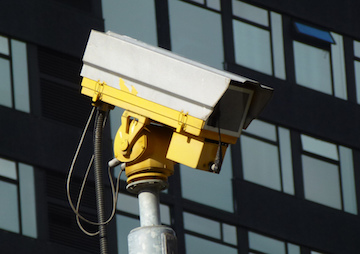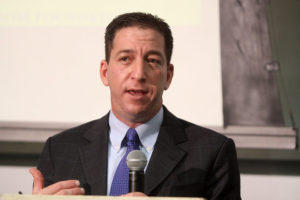Study: Mass Surveillance Breeds Meekness, Fear and Self-Censorship
Oxford researchers found that “the mere existence of a surveillance state breeds fear and conformity and stifles free expression,” Glenn Greenwald writes at The Intercept. Mikey / CC-BY-2.0
Mikey / CC-BY-2.0
Oxford researchers found that “the mere existence of a surveillance state breeds fear and conformity and stifles free expression,” Glenn Greenwald writes at The Intercept.
As The Washington Post described the phenomenon: “If we think that authorities are watching our online actions, we might stop visiting certain websites or not say certain things just to avoid seeming suspicious.”
Greenwald continues:
The new study documents how, in the wake of the 2013 Snowden revelations (of which 87% of Americans were aware), there was “a 20 percent decline in page views on Wikipedia articles related to terrorism, including those that mentioned ‘al-Qaeda,’ “car bomb’ or ‘Taliban.’” People were afraid to read articles about those topics because of fear that doing so would bring them under a cloud of suspicion. The dangers of that dynamic were expressed well by Penney: “If people are spooked or deterred from learning about important policy matters like terrorism and national security, this is a real threat to proper democratic debate.”
As the Post explains, several other studies have also demonstrated how mass surveillance crushes free expression and free thought. A 2015 study examined Google search data and demonstrated that, post-Snowden, “users were less likely to search using search terms that they believed might get them in trouble with the US government” and that these “results suggest that there is a chilling effect on search behavior from government surveillance on the Internet.”
The fear that causes self-censorship is well beyond the realm of theory. Ample evidence demonstrates that it’s real – and rational. A study from PEN America writers found that 1 in 6 writers had curbed their content out of fear of surveillance and showed that writers are “not only overwhelmingly worried about government surveillance, but are engaging in self-censorship as a result.” Scholars in Europe have been accused of being terrorist supporters by virtue of possessing research materials on extremist groups, while British libraries refuse to house any material on the Taliban for fear of being prosecuted for material support for terrorism.
There are also numerous psychological studies demonstrating that people who believe they are being watched engage in behavior far more compliant, conformist and submissive than those who believe they are acting without monitoring. That same realization served centuries ago as the foundation of Jeremy Bentham’s Panopticon: that behaviors of large groups of people can be effectively controlled through architectural structures that make it possible for them to be watched at any given movement even though they can never know if they are, in fact, being monitored, thus forcing them to act as if they always are being watched. This same self-censorsing, chilling effect of the potential of being surveilled was also the crux of the tyranny about which Orwell warned in 1984:
There was of course no way of knowing whether you were being watched at any given moment. How often, or on what system, the Thought Police plugged in on any individual wire was guesswork. It was even conceivable that they watched everybody all the time. But at any rate they could plug in your wire whenever they wanted to. You have to live – did live, from habit that became instinct – in the assumption that every sound you made was overheard, and, except in darkness, every movement scrutinized.
—Posted by Alexander Reed Kelly.
Your support matters…Independent journalism is under threat and overshadowed by heavily funded mainstream media.
You can help level the playing field. Become a member.
Your tax-deductible contribution keeps us digging beneath the headlines to give you thought-provoking, investigative reporting and analysis that unearths what's really happening- without compromise.
Give today to support our courageous, independent journalists.




You need to be a supporter to comment.
There are currently no responses to this article.
Be the first to respond.